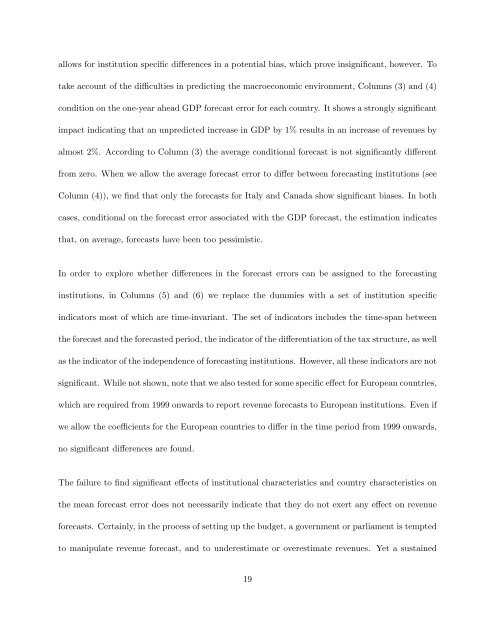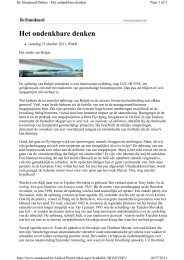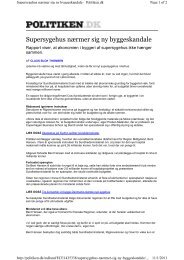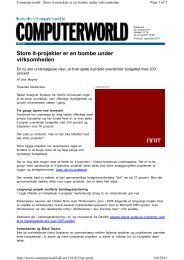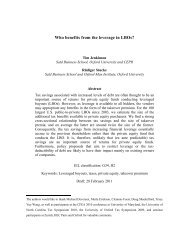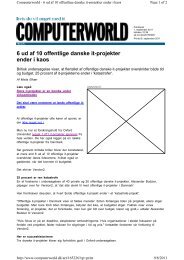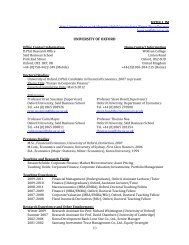Revenue Forecasting Practices: Differences across Countries and ...
Revenue Forecasting Practices: Differences across Countries and ...
Revenue Forecasting Practices: Differences across Countries and ...
Create successful ePaper yourself
Turn your PDF publications into a flip-book with our unique Google optimized e-Paper software.
allows for institution specific differences in a potential bias, which prove insignificant, however. To<br />
take account of the difficulties in predicting the macroeconomic environment, Columns (3) <strong>and</strong> (4)<br />
condition on the one-year ahead GDP forecast error for each country. It shows a strongly significant<br />
impact indicating that an unpredicted increase in GDP by 1% results in an increase of revenues by<br />
almost 2%. According to Column (3) the average conditional forecast is not significantly different<br />
from zero. When we allow the average forecast error to differ between forecasting institutions (see<br />
Column (4)), we find that only the forecasts for Italy <strong>and</strong> Canada show significant biases. In both<br />
cases, conditional on the forecast error associated with the GDP forecast, the estimation indicates<br />
that, on average, forecasts have been too pessimistic.<br />
In order to explore whether differences in the forecast errors can be assigned to the forecasting<br />
institutions, in Columns (5) <strong>and</strong> (6) we replace the dummies with a set of institution specific<br />
indicators most of which are time-invariant. The set of indicators includes the time-span between<br />
the forecast <strong>and</strong> the forecasted period, the indicator of the differentiation of the tax structure, as well<br />
as the indicator of the independence of forecasting institutions. However, all these indicators are not<br />
significant. While not shown, note that we also tested for some specific effect for European countries,<br />
which are required from 1999 onwards to report revenue forecasts to European institutions. Even if<br />
we allow the coefficients for the European countries to differ in the time period from 1999 onwards,<br />
no significant differences are found.<br />
The failure to find significant effects of institutional characteristics <strong>and</strong> country characteristics on<br />
the mean forecast error does not necessarily indicate that they do not exert any effect on revenue<br />
forecasts. Certainly, in the process of setting up the budget, a government or parliament is tempted<br />
to manipulate revenue forecast, <strong>and</strong> to underestimate or overestimate revenues. Yet a sustained<br />
19


